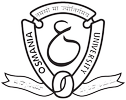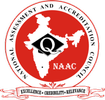Best Practices
1. OBSERVATION OF QUALITY WEEK
Context:
Vision and Mission of the college is to provide quality based education through structured system and processes. Education institute is a system of interdependent process. People in the system cannot do better than the system itself. In this context system and atmosphere is created to nurture team, sensitize team on observing quality, diagnosed areas of problems improve quality and evolve quality benchmarks.
Objectives:
1. The main objective is to sensitize the staff on the observance and implementation of quality in all curricular and non curricular activities to make them globally competent and smart.
2. Another objective is to eliminate waste of human resource and to identify potential areas for quality improvement and innovation.
Practice:
In the beginning of Academic year HOD department meetings is called to discuss and finalize the schedule of quality week in the departments. HODs are given responsibility to constitute departmental quality committees by involving faculty and students. The committee is assigned the task to sensitized students and teachers about quality in all areas of teaching, learning, student support services and administration using various means they are also responsible to examine the measures taken to improve quality by contemporary institutions. Innovative ideas generated during the quality week by the members are brainstormed and those ideas are submitted to the IQAC for institutionalizing them after taking approval of management.
Impact of Practice:
The impact of observing this practice is healthy and encouraging. The staff and students became quality conscious for college overall development and self improvement. Faculty has become open to new ideas and they became adoptable to change and they contribute many new practices in their department viz. Departmental Library Bank. Mindset of the faculty and students has been transformed.
Resources:
- Dedicated focused and mission oriented faculty who are perpetual learners.
- Regular seminar etc. on quality related issues to reorient faculty members.
- Administrative and academic reforms to facilitate change.
2. DECENTRALIZED AND PARTICIPATIVE MANAGEMENT
Context:
Vision and Mission of the college is to provide quality based education through structured system and processes. Education institute is a system of interdependent process. People in the system cannot do better than the system itself. In this context the practice of decentralization and participative management has been adopted involving stakeholders and partners in decision making this has enabled easy, fast and transparent decision making. It helped to diagnose the weaknesses of the system and the helped timely to improve quality of the system by plugging the loopholes.
Objectives:
- The objectives of this practice are to create quick and effective delivery mechanism to the stakeholders who are ultimate beneficiaries.
- It has created sense of satisfaction and belongingness among the stakeholders.
- It helped Stakeholders to take active interest and part in the development and support activities of the college.
Practice:
The Organization Setup is designed to groom leadership and to facilitate functioning of academic curricular, co-curricular and extracurricular activities and events conducted by Institution. The administrative and teaching structure of the institution is based on the principle of division of powers with accountability and transparency in processes. The governing body is the highest policy making body of the institution. Vision, Mission and Objective of the Institution are the guiding principles of basic policy forming. The governing body is assisted by various statuary and non statuary committees. The committees are constituted as per norms of the authorities experts, women and students are given due representation in the committees and their recommendation and suggestions are given due consideration in formulating institutions policies. Principal is the academic and administrative head of the institution responsible for proper and effective execution and implementation of the policies. Principal act as channel of communication between staff and management he provides necessary feedback for change and correction in policies based on the day to day experiences. Open door policy is adapted by the principal. Teaching and non teaching staff and students are free and open to share and ventilate the grievances and talk openly on the quality aspects of teaching, learning and administration. Principal with the assistance of the heads of the department are given free hand in formulating regulations towards implementing effectively policy issues in teaching learning and administration. HOD’s are autonomous they delegate powers and authorities to the staff members in certain routine aspects of teaching and learning. HOD’s are accountable to the Principal in day to day functioning and also in implementation of policy. Plan of action is drawn at beginning of the year by IQAC and approval is taken by the governing body for implementation. The approved plan of action is communicated through principal to respective heads of department and respective committees for implementation. The quality issues of the institution are taken care by the IQAC. Internal and External administrative and academic audit are conducted by the experts to identify the weakness in the system and to the strengthen the administrative and academic of the institution. Following are the examples of decentralization and participative management: Statutory committees: statutory committees such as governing body, academic council, finance committee and Board of studies have representation of all stake holders. Non Statutory Committees: non statutory committees such as Planning and Evaluation Committee, Grievance Appeal Committee, Examination Committee, Admission Committee, Library Committee, Student Welfare Committee, Extra-Curricular committees etc. have representation of all stakeholders.
Impact of Practice:
- Stakeholders are involved in strategic planning and also functional planning.
- Decision making became fast and efficient.
- Less wastage of time and human resources.
- Timely diagnosis of systemic and functional problems.
- Speedy development
- Less inter departmental and intra departmental conflicts and disputes.
- Positive perception among the stakeholders towards college and management.
Resources:
- Administrative and academic reforms to facilitate change.
- Dedicated focused and mission oriented faculty who are perpetual learners.
- Regular seminar etc. to reorient faculty members.
3. Earn while learn
Core element of teaching and learning is skill development and placement while devising courses this aspects is given priority and syllabus are updated and revised keeping in view needs and requirements of society and industry. The suggestions given by the stakeholders are also reflected in teaching learning process. The Institution introduced skill based value added courses to enhance the employment. The institution also has collaborations and linkages with placement agencies. Job melas are organized for student and placements are provided to them. In addition to these coaching classes, guidance and councelling are provided to the students for competitive examinations conducted by state, central government organizations. Prospective students for job are provided with soft skill training, training in basic skills of computers and training for facing the job interviews.
4. Mentoring
Mentoring of students is an essential feature to render equitable service to all our students having varied background. Student-mentorship has the following aims:
- To enhance teacher-student contact hours
- To enhance students’ academic performance and attendance
- To minimize student drop-out rates
- To identify and understand the status of slow learners and encourage advanced learners
- To render equitable service to students
The institute has followed the suggestion made by IQAC of college to introduce the mentoring system. The importance of integrating the system for enhancing students’ performance is a common resolution adopted by a meeting of the teaching faculty. The system was promptly and effectively put into practice with a wide diversity in students in regard to educational and economic background, the system promises to provide a better understanding of individual students and bring out their highest potential. It also appears to be the most effective method/weapon for mitigating hardships of those students who are vulnerable to drop-out from studies.
The IQAC had taken the initiative of implementing the mentoring of students. Students are categorized based on the streams of studies and also according to their core subjects. They are divided into groups up to a maximum of 30. Each group is assigned to a teacher-mentor who would perform mentoring duties for the allotted group. A Mentoring Format with guidelines is prepared by the IQAC to ensure uniformity.
5. Outcome-based Education (OBE)
College has adopted Outcome-Based Education (OBE) system which is a student-centric where in the objectives of the course and the programme outcomes are predetermined and teaching and learning processes and delivery is according to the set objectives and the students are assessed on the basis of predetermined outcomes. At the end of the programme, feedbacks of the stakeholders are taken on the basis of objectives and after analyzing their feedbacks weaknesses are identified and suggestions are reflected while designing the course and the programme for the ensuing year.
Best Practice – 1
Title of the Practice: INDUSTRY ACADEMIC CO-ORDINATION
Objectives of the Practice:
Infuse industrial experience, practices in the academia
Hands on experience to make them more employable
The Context: Each department collaborates with different organizations for placements of students, internships, research work, extension work, etc.
The Practice: The Department of Chemistry has collaborated for research with Hilal Herbal Remedies and with Anwarul Uloom College of Pharmacy. FDP and workshop are also conducted in collaboration with Telangana Science Fair Academy.
The Department of Botany has collaborated with IOTA Laboratories, New Mallepally. It has also collaborated with the Department of Botany, Nizam College, OU for students projects and also certificate course on Clinical Palynology. The department has also collaborated with IFB (Institute of Forest Biodiversity) Dulapally and organized a 2 day National Conference on New Horizons in Applied Plant Sciences Research & its impact on Human Welfare.
Evidence of Success:
More orientation towards research.
Students imbibed with skills for better placement.
Problems Encountered and Resources Required: Disinterest of reputed institutions to cooperate and collaborate.
Best Practice – 2
Title of the Practice: `Use of ICT in Teaching Learning`
Objectives of the Practice:
To facilitated speeder delivery of teaching and learning.
Provide access to students through Moodle Classroom and Institutional Depository System
To facilitate the training of ICT Teaching to faculty
To promote research related activities among students
The Context: ICT is used as effective teaching tool for improving learning experience. Use of ICT in teaching learning has a significant impact on students’ achievement i.e., better knowledge acquisition, presentation skills are enhanced. These skills promote the entrepreneurial and employable skills among students .Keeping this in view our college has introduced the best practice `Use of ICT in Teaching Learning`.
The Practice:
- Skill gaps were identified for the students taking into consideration the revised curriculum.
- Teachers are motivated to use student centric ICT enabled teaching.
- Plans prepared for ICT based Teaching Learning.
- Human and physical resources are provided.
- Training program for faculties are organized.
- Introduce d ILMS.
- ICT teaching and infrastructure is upgraded.
Evidence of Success:
Delivering has become speedier and effective
The Library is enriched with multimedia content, e publications, e research journals and INFLIBNET and also free internet facility.
The college provides well equipped Seminar Hall with audio visual aids and interactive SMART board, Computers, laptops and OHP.
Problems Encountered:
Resistance to change
Lack of computer skills
Resources Required: More networking with institution/industries is required.


